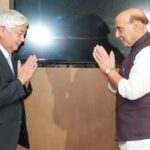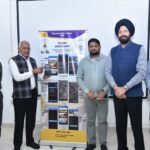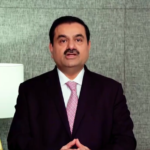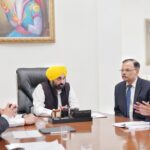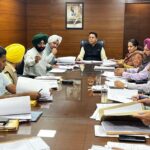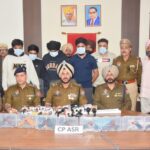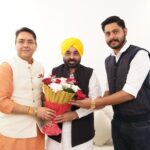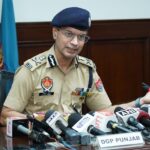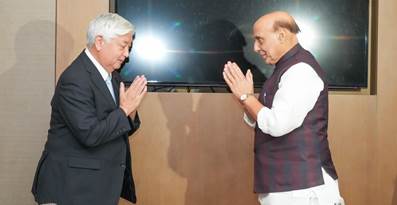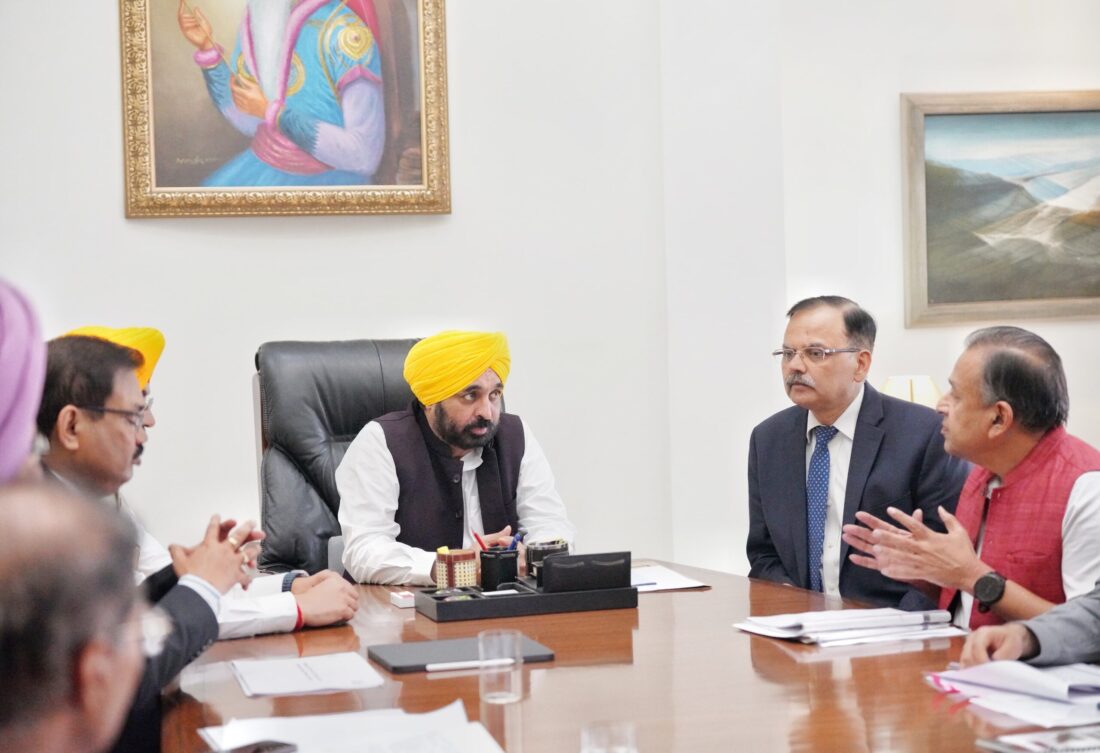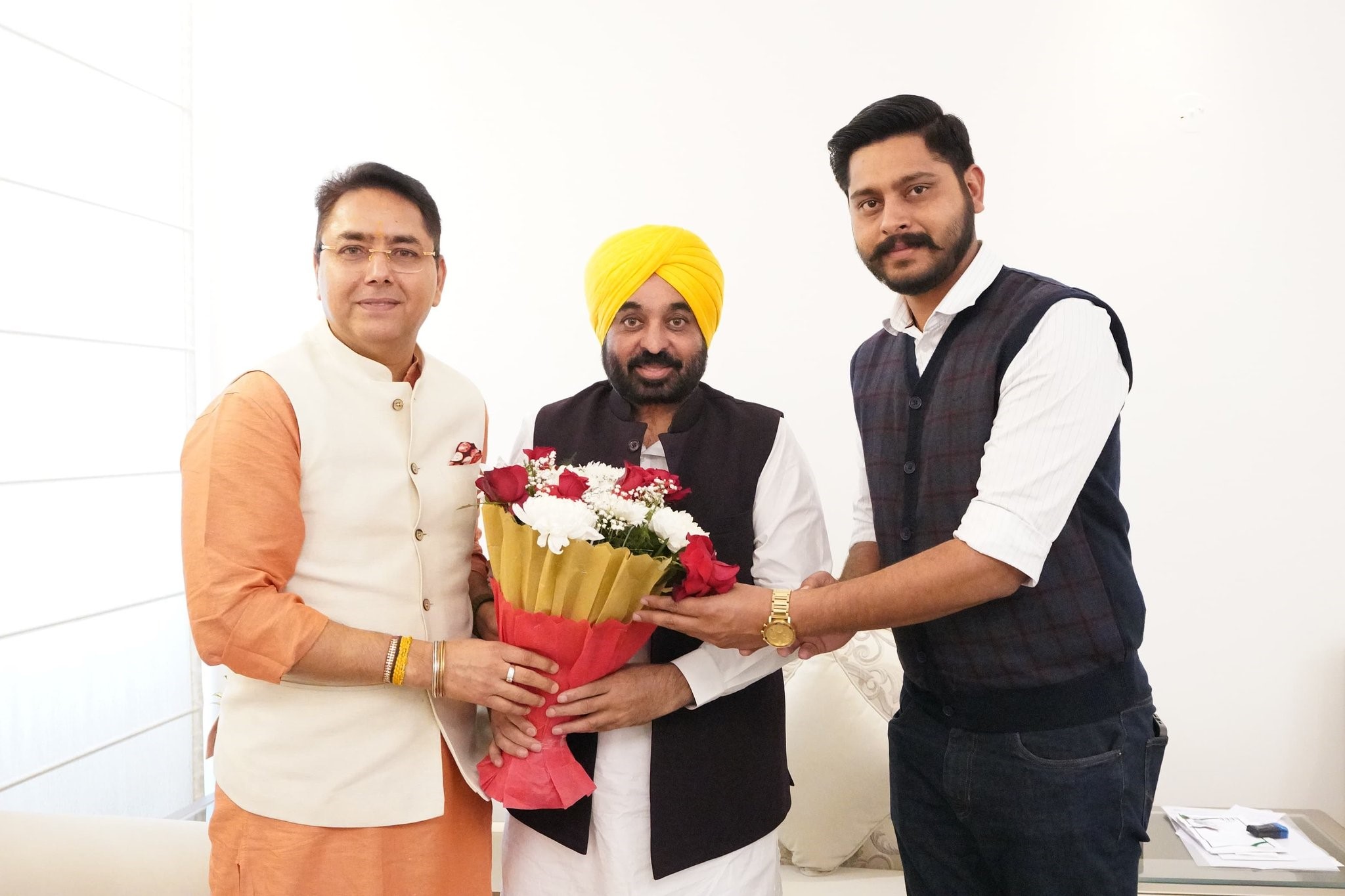North News
New Delhi, October 15
Prime Minister Narendra Modi emphasized on Tuesday that global institutions must collaborate to establish a unified governance framework for digital technologies. This framework should focus on the ethical use of artificial intelligence and data privacy, while also respecting the diverse contexts of different countries. Speaking at the inauguration of the World Telecommunication Standardization Assembly (WTSA) 2024 and the 8th edition of the India Mobile Congress (IMC) at Bharat Mandapam in New Delhi, Modi highlighted India’s significant digital achievements and its growing role in global telecommunications and digital standards.
Modi pointed to India’s massive mobile user base of 1.2 billion, 950 million internet users, and real-time digital transactions that account for more than 40% of the world’s total. He emphasized how digital connectivity has become a powerful tool for delivering government services to the last mile and bridging gaps between urban and rural areas, as well as rich and poor.
Addressing the combined event of WTSA and IMC, Modi praised the synergy between the two organizations, noting that WTSA focuses on global telecommunication standards while IMC promotes services. He stated that this event brings together standards and services on a global platform, which is crucial in an interconnected world.
Modi emphasized India’s strong engagement in setting global telecom standards, stating that the experience from WTSA will energize India’s progress in quality service and telecom infrastructure. He also congratulated the international community for choosing India as the venue for these discussions.
Reflecting on India’s telecom journey, Modi stressed that in India, telecommunications are not just about connectivity but about equity and opportunity. He recalled his decade-old vision of Digital India, built on four pillars: affordable devices, widespread digital connectivity, accessible data, and a “Digital First” approach. He credited this holistic strategy for India’s digital revolution.
He highlighted India’s rapid advances in telecom infrastructure, noting the installation of mobile towers across remote areas, Wi-Fi facilities at public locations, and undersea cables connecting islands like Andaman-Nicobar and Lakshadweep. Modi also mentioned India’s leadership in adopting 5G technology, with nearly every district now connected, and its ongoing progress toward 6G.
Modi underscored India’s success in making data affordable, noting that the cost of internet data in India is as low as 12 cents per GB compared to much higher costs in other countries. He said that every Indian now consumes about 30 GB of data per month on average, which has spurred the growth of digital platforms and innovations.
He praised the role of the JAM Trinity—Jan Dhan, Aadhaar, and Mobile—in creating opportunities for digital innovations. Modi noted that platforms like the Unified Payments Interface (UPI) have transformed digital commerce, and initiatives like ONDC (Open Network for Digital Commerce) are set to revolutionize the sector.
During the COVID-19 pandemic, digital platforms proved critical in ensuring real-time communication, financial transfers, and vaccine delivery. Modi reiterated India’s willingness to share its Digital Public Infrastructure (DPI) experience globally and said India’s digital model, highlighted during its G20 Presidency, could benefit welfare schemes worldwide.
Modi placed a strong emphasis on women’s inclusion in the technology sector. He noted that during India’s G20 Presidency, the country pushed for women-led development. He highlighted several initiatives, including the Namo Drone Didi program for women in agriculture, the Bank Sakhi program for digital banking, and the Mahila E-Haat platform for women entrepreneurs.
He also highlighted the increasing participation of women in science, technology, engineering, and mathematics (STEM) education, with women now representing 40% of students in these fields. Modi expressed his hope that India’s efforts would lead to more women in tech leadership positions and that every Indian village would see women at the forefront of technological advancements.
Modi reiterated the need for a global framework for digital technology governance. He pointed out that the borderless nature of digital tools requires international collaboration to address issues like cyber threats and data security. Drawing parallels to existing frameworks in aviation, he called on the WTSA to take a leading role in creating secure digital ecosystems.
He also stressed the importance of ethical AI and data privacy standards that respect the diversity of nations. Modi urged global institutions to adopt guidelines for the responsible use of technology, emphasizing that security must be a priority in the digital age.
“The time has come for global institutions to accept the importance of global governance,” Modi said, calling for global standards that are inclusive, secure, and adaptable to future challenges.
Modi concluded by calling for a human-centric approach to the technological revolution. He stressed that innovation should be balanced with inclusion, ensuring that no country or community is left behind. He highlighted the importance of responsible and sustainable innovation that upholds principles of security, dignity, and equity.
Modi extended his best wishes to the participants of WTSA and IMC, expressing hope that the event would contribute to the development of inclusive global standards for digital technology.
Union Minister for Communications Jyotiraditya Scindia, Union Minister of State for Communications Chandrasekhar Pemmasani, and Secretary General of the International Telecommunication Union (ITU) Doreen Bogdan-Martin, along with telecom industry leaders and international dignitaries, attended the event.


